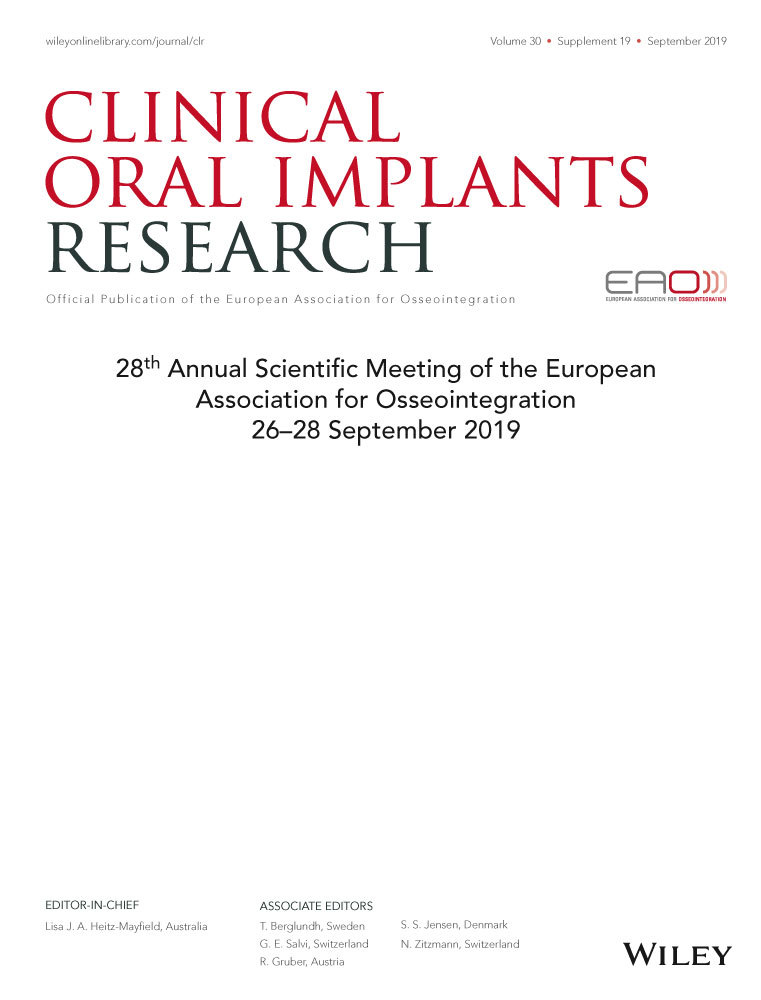Peri-implantitis was not associated with molecules involved in foreign body reaction- a human study
15531 Poster Display Clinical Research – Peri-implant Biology
Background
Peri-implantitis has been considered an infectious inflammatory disease that causes bone loss and if not treated could lead to implant loss. Several studies have been conducted understand the modulation host responsible for the pathogenesis of peri-implant diseases. In this context, it was suggested that peri-implant bone loss would be caused by a foreign body reaction triggered by immune system proteins in response to the titanium implant inserted into the bone.
Aim/Hypothesis
This study aimed to evaluate the gene expression levels of IL -4, MIP-1α and MMP-9, factors involved in the formation of giant cells detected in foreign body reaction, around soft tissue samples harvested from healthy and diseased peri-implant sites.
Material and Methods
Thirty-five subjects (15 clinically healthy peri-implant tissue and 20 with peri-implantitis, defined as Probing depth > 5 mm, bleeding on probing and or suppuration and bone loss > 4 mm) were included in this study. The peri-implant tissue biopsies were subjected to total RNA extraction, DNase treatment and cDNA synthesis. Subsequently, the reaction of real-time PCR was performed to evaluate the gene expression levels of IL-4, MIP-1α and MMP-9 in relation to the reference gene. The data were analyzed by the non- parametric test of Mann-Whitney, with a significance level 5%.
Results
The results showed an increase in IL-4 expression in the group with peri-implantitis, compared to the control group. However, no differences were observed between the groups with respect to MIP-1α and MMP-9. There was no correlation between immunological and clinical data (P > 0.05).
Conclusion and Clinical Implications
Within the limits of this cross-sectional study, there was no involvement of molecules related with foreign body reaction in both healthy and diseased implants.




